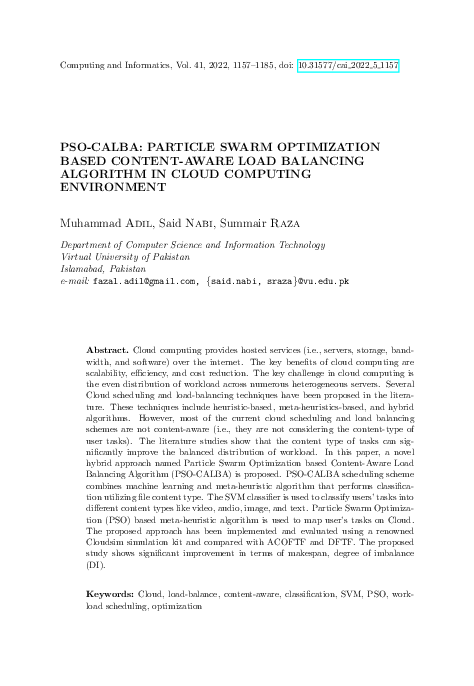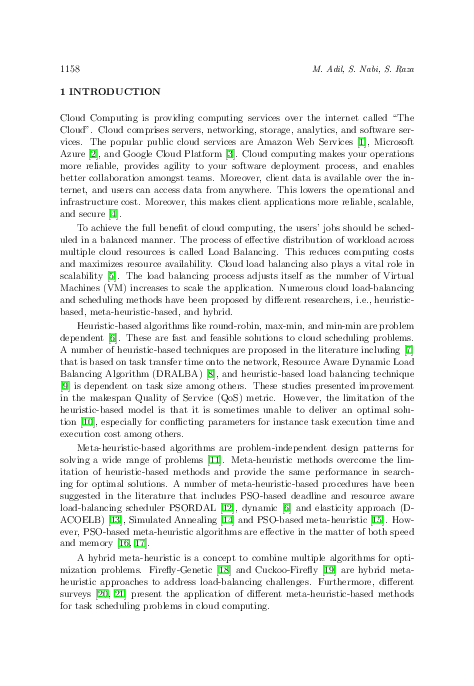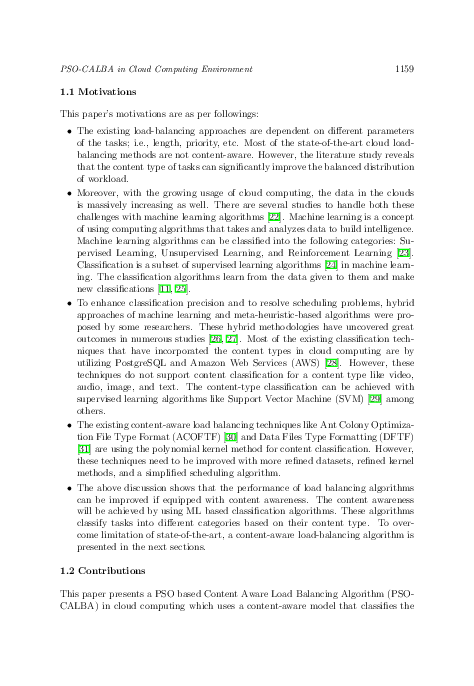PSO-CALBA: Particle Swarm Optimization Based Content-Aware Load Balancing Algorithm in Cloud Computing Environment
keywords: Cloud, load-balance, content-aware, classification, SVM, PSO, workload scheduling, optimization
Cloud computing provides hosted services (i.e., servers, storage, bandwidth, and software) over the internet. The key benefits of cloud computing are scalability, efficiency, and cost reduction. The key challenge in cloud computing is the even distribution of workload across numerous heterogeneous servers. Several Cloud scheduling and load-balancing techniques have been proposed in the literature. These techniques include heuristic-based, meta-heuristics-based, and hybrid algorithms. However, most of the current cloud scheduling and load balancing schemes are not content-aware (i.e., they are not considering the content-type of user tasks). The literature studies show that the content type of tasks can significantly improve the balanced distribution of workload. In this paper, a novel hybrid approach named Particle Swarm Optimization based Content-Aware Load Balancing Algorithm (PSO-CALBA) is proposed. PSO-CALBA scheduling scheme combines machine learning and meta-heuristic algorithm that performs classification utilizing file content type. The SVM classifier is used to classify users' tasks into different content types like video, audio, image, and text. Particle Swarm Optimization (PSO) based meta-heuristic algorithm is used to map user's tasks on Cloud. The proposed approach has been implemented and evaluated using a renowned Cloudsim simulation kit and compared with ACOFTF and DFTF. The proposed study shows significant improvement in terms of makespan, degree of imbalance (DI).
reference: Vol. 41, 2022, No. 5, pp. 1157–1185


